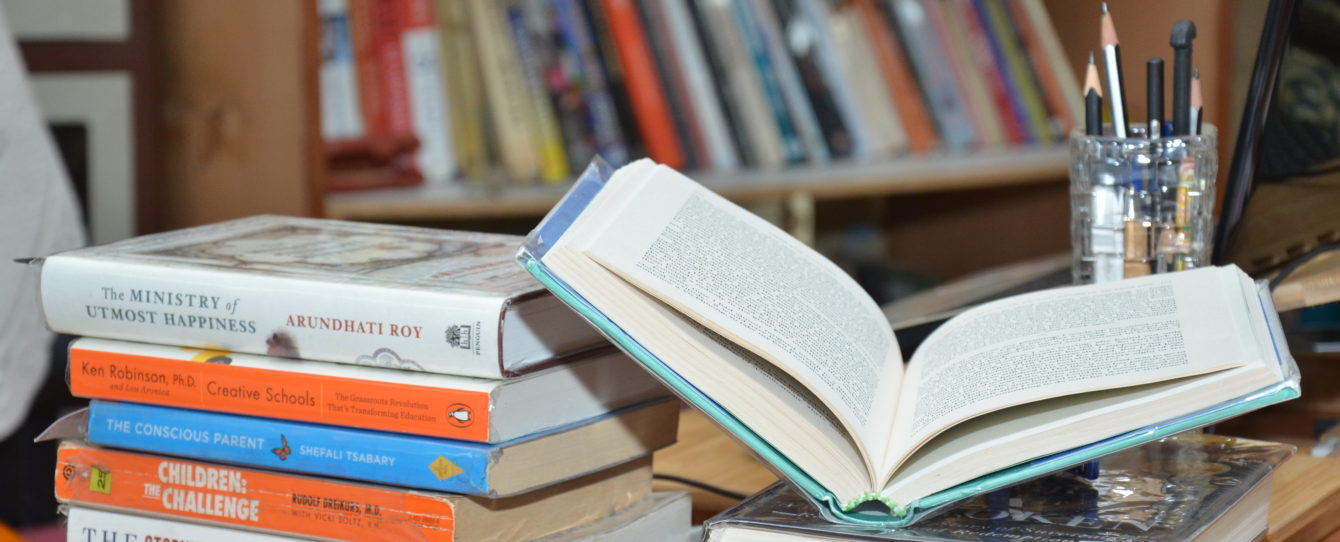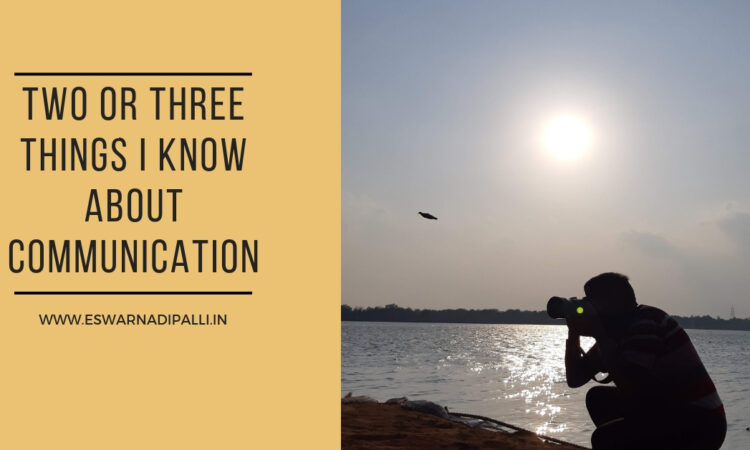(Communication is an emotional gesture that stands as the bedrock for any marriage. Besides oiling mutual acceptability, it surely facilitates being cool, calm and close. Further, fine-tunes the partners as well adjusted, neutralize the negatives, and induces goodwill which shock absorbs the sorties of stress and hardships.)
I had put down the phone; disturbing thoughts are drumming inside me.
Notwithstanding the twang, I push myself to deep rumination which I’m used to when someone speaks about failing relationships and marital discords.
It’s a call from one of my teachers now retired and supposed to lead a restful lifestyle; she seems troubled by her daughter’s marital conflict, according to her, not going on a smooth track.
Her daughter, ten years in marriage, let’s call her Leela; she was never comfortable with her husband. With two young children, the bunch of complaints she has for her husband and her in-laws sounds most plausibly silly, and are not coherent to defend in her favor.
“Sometimes, I feel the husband’s attitude also has some spots of inconsistencies: not able to communicate clearly, not able to control anger; I feel the trust quotient is low, between them” the teacher held a tone of accusing, trying to push under the carpet Leela’s omissions.
I could sense the eagerness of the teacher trying to gain a sympathetic posture for her daughter. I couldn’t help but hint a caution, “See that in the peppery environment, the two children don’t get affected, it might cause long-standing damage to their psyche.”
Leela, a postgraduate, leading a high-class life, and the poignant tune of this strife got composed and raised its pitch in the US. Now, none to mediate took an awful guise, ended as messy spats in her well-placed house in New Jersey.
The teacher had given her only daughter, what she had earned and achieved in her thirty years of service, money, good education, physical comforts. But she never realized these millennials never learned to look at their own mistakes. They seemed stupid and clueless; not shrewd enough to dig out their inner resources and seek solutions in case conflicts came their way.
There was something, a way of an offensive ego trip, to Leela, who would judge others as easily as we open a faucet. She spared none in a free fall of her judgmental retorts. Does she understand the basic premise of inviting goodwill into a family environment? No, damnably, she doesn’t. She was carrying her shortcomings behind her back, and she never knew what attitudinal contents it has. She never recognized what she ever wanted, what her strong points are, she never assessed herself in the light of problems she was facing. She was afraid to admit, perhaps, ‘she is the problem.’ Who will point out it to her that she is?
Who will tell her that a better understanding of ourselves brings us closer to an understanding of our dearest ones? If we are mindful with all our honesty, about the fact, how often in unpredictable ways in which we behave and think, it’s easy to see more truly why others behave the way they behave, act the way they act. When I’m more comfortable in knowing what I’m, I’ll be more comfortable in understanding others what they are. Let me fix what I’m first. This ought to be the preamble for Leela’s lessons in relationships.
Misunderstandings among couples melt quickly when each other’s limitations get fairly sympathized, but the stubbornness dead deep inside we tend to push the buck of shortcomings and blame games towards our partner’s description.
I could make out quickly the bold mental vacuum that dented Leela’s attitude. She never assessed the value of the intimate whiffs of communication that breathed between married couples. It’s said, ‘the more we fail to speak, the more difficult the speaking becomes.’ It’s the harsh truth; mirrors the mental limitations, which doesn’t allow us easily to please our partners.
In our daily drills, suppressing some triggers of fear, anger, and pain and silently enduring the emotions, checking the scars all the time, it appears, we resign to a habit of monologue as if it’s the only comfort we ask for. We don’t bother that the sensibilities of our partner, perhaps, carry an unspoken empathy – without giving such sentiments the merits due we deliberately withhold our voice of affection.
Communication is the lifeblood of an everlasting marriage relationship.
It’s an emotional gesture that stands as the bedrock for any marriage. Besides oiling mutual acceptability, it surely facilitates being cool, calm and close. Further, fine-tunes the partners as well adjusted, neutralize the negatives, and induces goodwill which shock absorbs the sorties of stress and hardships.
Conveying our thoughts and feelings to the other person requires a dialogue; it involves not merely an expression of unhappy feelings, but it’s filled with the language of joy, intimacy, excitement, and sharing.
Among many young married couples, in our case that of Leela’s, it’s the scarce insight failing to differentiate between the asset of language and the ability to express the emotional requirements that pave the way to a happy home. Good at a language is not the same as making good use of communicating skills.
Language is something we gain as we mature steadily much like we gain our qualifications, as we grow up as adults. But conversations we employ, sympathizing and connecting with our partner is something else, much more emotional, it tickles a lot of excitement, ought to have a touching grace: celebrated and practiced. It’s a precious experience, a two-way enjoyment in a marriage, between two souls.
Instead, happiness, peace-filled days never seemed Leela’s first concern, she hardly admits it to herself, she takes refuge in silence and hurt, and resentment, and hides in a cocoon of loneliness. She doesn’t know what she wanted. She never considered speaking out her needs and sailing together with her partner -an option as the only way out.
Leela kept her life in an auto mode: days futilely passed before her, filled with domestic chores, children, and she assumed she got stuck in the loop of mental drudgery, physical exhaustion. She tinkers with a feeling her life had lost freshness early, enthusiasm had a quick burial, passion, and stimulation to attempt something worthwhile died quickly, and drums of negative thoughts had increased their volume as days passed.
I would be happy to see if Leela could approach to solve her problem with a proactive bent of openness.
She must understand the magnetic power of loving communication in a marital relationship.
Good communication with our partner gives us an experience of being loved, being wanted, as much as we feel we are a source of joy to our partner.
In true communication, we understand the character, the individual needs, preoccupations, emotional liabilities, and accordingly, we organize the words, create the mood, modify the tone, remove the mask of pessimism, and apply the talk of togetherness. The welfare of the family is the only goal, enhancement of happy moods, and fulfillment touching all members is a glorious responsibility. Choice of language is my privilege; I’m sure to achieve a balanced unity with my silence, my actions, or with my listening.
Wouldn’t it be wonderful if Leela could treat herself with such a refined manner of communication with those she loved in the family? How nourishing, rewarding and splendid it would be.
She should understand the essence of communication is the ability and eagerness to look forward every day with freshness and full of hope.
In the affairs of communication, in the relaxed environs of the home every move we make has a meaning, the smile on the face, the small talk at the breakfast table, it’s our small gestures, not the words, which matters to our partner, to our children. These curtsies give away special warmth which everyone in the family earnestly pleases to carry the whole day. The feelings flow clutching the threads of healing that everyone in the family gets connected. Our small words of understanding have the power to comfort, infuse vibrancy into the relationships, and happiness grows every day, and this is the basis for ‘living happily ever after’ days.


A well written article. A must read for young couples and for all those who wants to play a long fruitful innings in marriage.